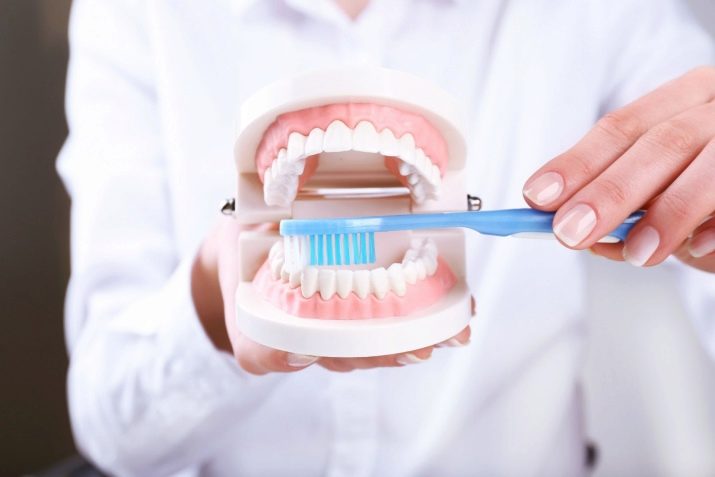Oral hygiene: basic rules and recommendations
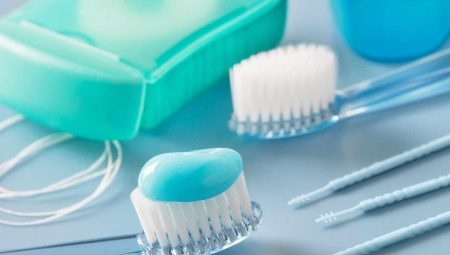
The human oral cavity is a real breeding ground for all kinds of bacteria, they settle on soft tissues and teeth - this leads to serious dental problems. In addition, as germs enter the body, they cause problems with the gastrointestinal tract. To balance the microflora and strengthen the immunity of the oral cavity, complex personal hygiene is required.
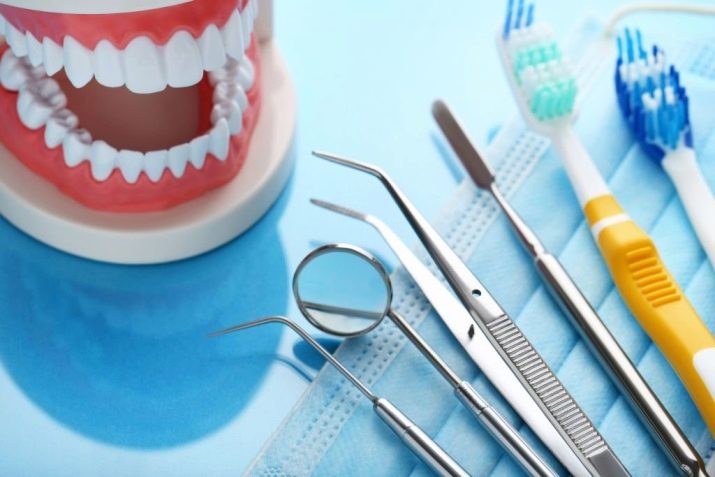
The importance of oral hygiene
The importance of oral hygiene is difficult to overestimate. It consists in the prevention of serious dental pathologies and in maintaining the aesthetic appearance of people. By adhering to the basic rules of dental care, you can achieve very significant results. Here are just a few of them:
- the formation of strong healthy teeth;
- neutralization of pathogenic bacteria;
- prevention of the appearance of periodontal disease and caries;
- prevention of infectious diseases of the oral cavity and gastrointestinal tract.
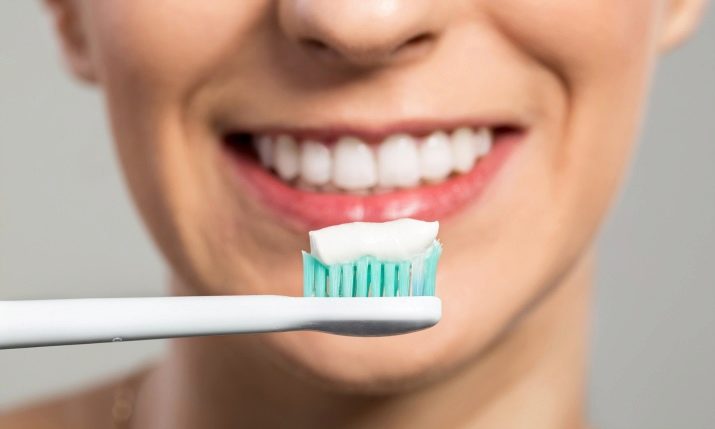
People who care for their teeth are distinguished by a beautiful snow-white smile and light breathing. An important plus will be significant savings on professional dental services.
Tools and devices
For oral hygiene to ensure complete cleaning, you will need special cleaning compounds and items. These include:
- toothbrush - for effective cleaning of teeth, tongue and cheeks;
- dental floss - to remove food debris from the interdental space;
- toothpaste - to prevent dental pathologies;
- interdental brushes - an auxiliary tool for cleaning food debris from hard-to-reach areas.
You will also need toothpaste and liquid rinse.
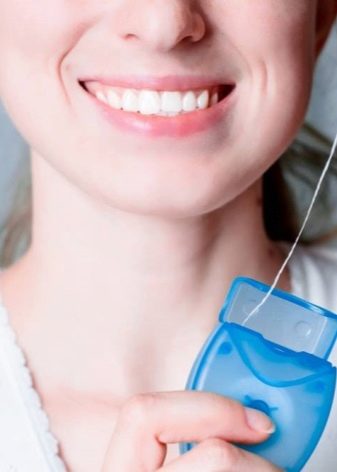
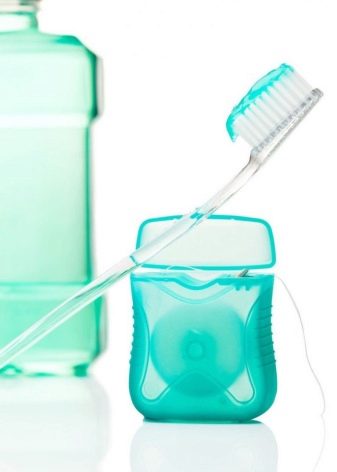
For teeth
The effectiveness of cleaning the oral cavity primarily depends on the selection of a toothbrush. They can be hard or soft, electric or ultrasonic. There are many varieties on sale, so making the right choice is not so easy.
The main criterion is the origin of the bristles - it can be synthetic or natural... In earlier years, natural materials were often preferred. However, fungus often appears in them. In addition, the villi often fall out and enter the digestive system, causing stomach irritation.
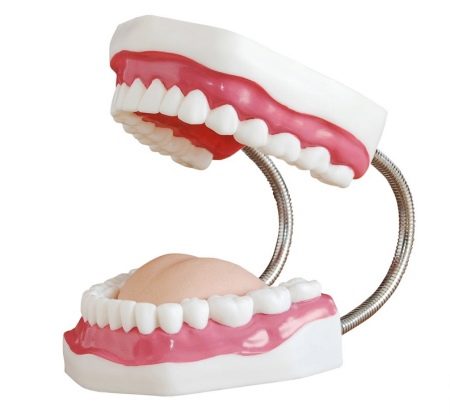
That is why, in developed countries, preference has long been given to artificial fibers based on polymers, they are devoid of all the disadvantages of natural materials and at the same time provide no less effective cleaning of the tooth surface.
Special attention should be paid to rigidity. According to the classification, there are three types of bristles.
- Soft varieties - suitable for people with increased sensitivity of tooth enamel and bleeding gums. They are also used by children and older people.
- Medium hard brushes - recommended for patients who do not have periodontal disease, caries and mucosal damage.
- Ultra Rigid Tools - Acquired strictly according to the prescription of the attending physician in case you need to get rid of hard dental calculus.
- Specialized orthodontic brushes are also produced, they are intended for the care of braces... Such products are distinguished by a special shape and thin pile, thanks to which they can penetrate into the most inaccessible areas.
Keep in mind - any brushes have a limited service life. The synthetic brush should be changed quarterly, the natural one every 14-20 days.
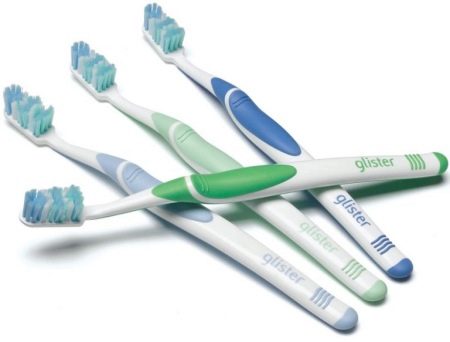
It is very important to choose the right toothpaste. When choosing a product, the average consumer is usually guided by the presence / absence of the whitening effect, pleasant aroma and affordable cost. Professional dentists advise paying attention to other criteria - the composition and category of toothpaste.
There are hygienic and treatment-and-prophylactic pastes on sale. The former will be a good prevention of oral infections, but they will not save you from caries. Such formulations are optimal for people with strong teeth to maintain their condition. In all other cases, it is better to give preference to therapeutic and prophylactic agents.
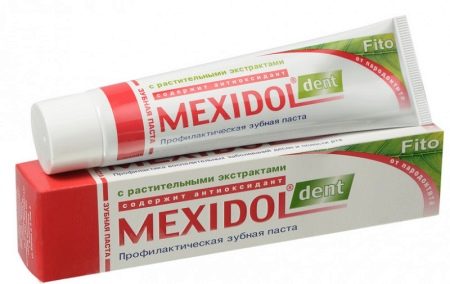
Healing pastes have a pronounced antimicrobial effect and prevent the appearance of dental plaque. Depending on the healing effect, there are several types.
- Antiseptic - are able to destroy foci of inflammation in the soft tissues of the oral cavity. They contain extracts of medicinal plants, thanks to which they are able to neutralize pathogenic microflora, kill infection and strengthen local immunity. However, you need to use such pastes only as prescribed by a doctor and in short courses; if used on an ongoing basis, they can cause harm.
- Whitening - recommended for use no more than twice a week and only by adults. If teeth are treated more often, their aggressive components will destroy the enamel.
- For problems with soft tissues, it is better to use pastes to strengthen the gums and eliminate bleeding.... For people with sensitive enamel, doctors advise products that contain bioactive ingredients such as fluoride ions, potassium chloride, hydroxyapatite or calcium nitrate.
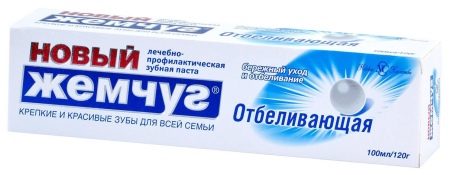
Important: formulations with fluoride are contraindicated for children, since babies often swallow the product during the cleaning process. In addition, such compositions are not recommended for use in cases where the water in the region of human residence contains a large amount of fluoride. Otherwise, it will lead to the appearance of plaque and calculus.
You can use medicated pastes for no longer than two weeks.They cure, but they do not clean teeth well. Their long-term use leads to a deterioration in the enamel condition and, as a consequence, to a violation of the digestive processes. After the course of treatment, it is necessary to return to the usual hygienic pastes, unless the dentist prescribes a continuation of the course.
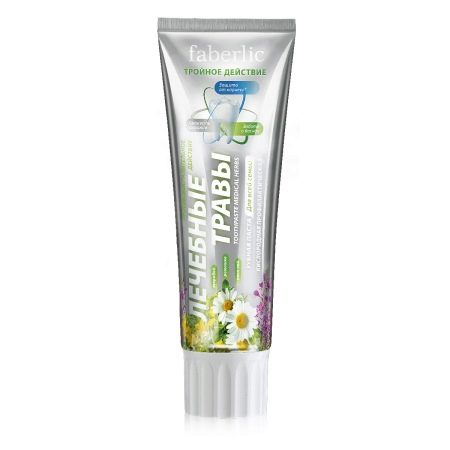
For the oral cavity
To complete the care procedures, use a rinse for the teeth and gums. Of course, for people with strong healthy teeth who have not previously struggled with bleeding gums, tooth decay and bad breath, no aids will be required. However, most people face dental problems in one way or another. They cannot do without balm, especially when:
there are unhealed diseases in the oral cavity;
- implants or dentures are installed;
- overly thin enamel that causes tooth sensitivity and discomfort when eating hot food:
- a person drinks more than two cups of coffee every day, and also drinks alcoholic beverages;
- has recently undergone surgery.
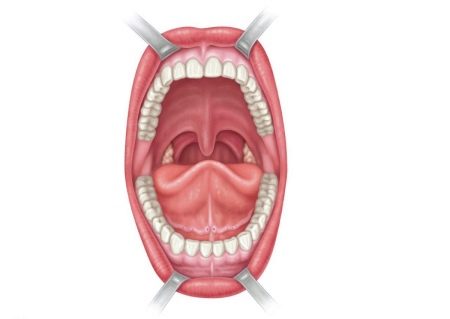
Like toothpaste, mouthwash can be hygienic and medicinal. Balms of the first type disinfect hard-to-reach areas between teeth and create caries prevention. They usually include sodium fluoride or aminofluoride, while the content of the active component does not exceed 250 ppm.
Healing rinses can be whitening, firming and anti-inflammatory. They can be used by both children and adults with dental problems. However, you can use them no more than a couple of times a week.
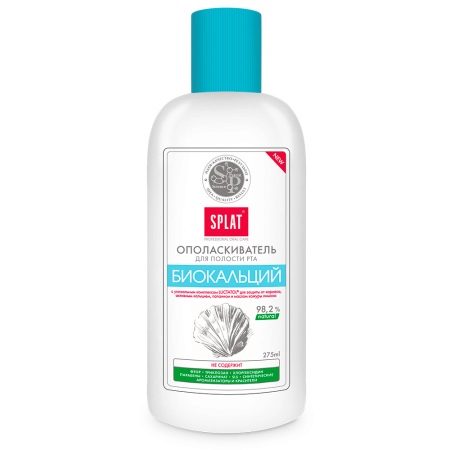
Important: if alcohol is included in the tooth balm, it will be contraindicated for people who drive a vehicle and for consumers under 18 years of age.
Daily personal hygiene rules
To maintain the optimal microflora of the oral cavity, in which soft and hard tissues will always be healthy and aesthetic, a number of hygienic measures are taken. Most of them are done at home.
For adults
Even the highest quality dental supplies cannot protect a person from inflammation and tooth decay if used incorrectly. You need to brush your teeth every day - in the morning half an hour after breakfast and in the evening before going to bed. The procedure begins with the treatment of molars, smoothly moving towards the canines and anterior teeth.
When processing vertical movements alternate with horizontal and circular from the gums to the tips of the teeth. In one pass, two or three teeth should be captured so that each one is given 15-20 seconds. In general, all hygienic manipulations take about 3-4 minutes.
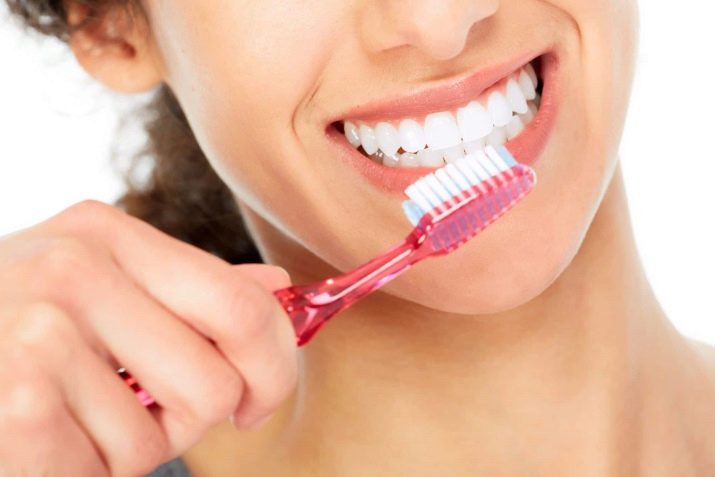
Finish the treatment with a massage of the gums, it allows you to establish blood circulation in the soft tissues. At the end of the procedure, you should clean the tongue - for this, use the ribbed surface of the toothbrush or a special rough spatula (you can buy it at every pharmacy). Cleaning allows you to rid the tongue of a huge variety of bacteria, if you neglect this stage of processing, pathogenic microbes will live on its rough surface... This in the most negative way affects the state of the gastrointestinal tract and provokes the appearance of halitosis (bad breath).
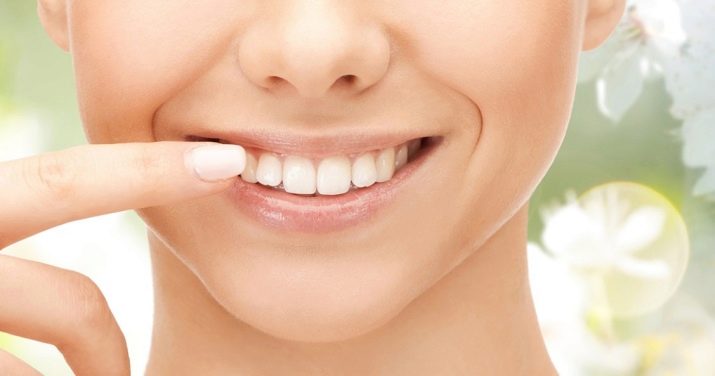
Dental floss is used to remove food particles trapped in the interdental space. It penetrates deeply between individual teeth in places where the brush bristles cannot reach. Dentists recommend using deep cleaning at least 1 time per day.
For kids
Children need to be taught to care for their teeth from early childhood. At a young age, while the teeth have not yet appeared, you should take care of the gums - for this, manufacturers produce special napkins. This treatment should be done after every meal.
For teething in pharmacies, special silicone fingertips are presented, they resemble a toothbrush. At this stage, children experience a lot of uncomfortable sensations, therefore, during the first procedures, the child will most likely cry. But he very quickly gets used to cleaning and subsequently quickly switches to a regular brush and paste.
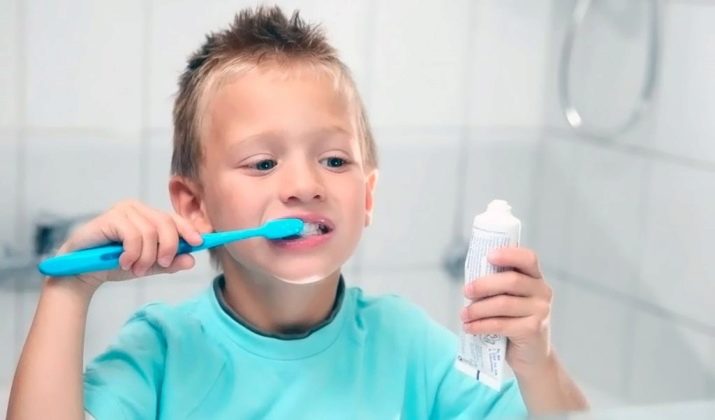
At 1.5-2 years old, you should start learning how to brush your teeth... During this period, the child is bought a special baby paste and a brush. However, keep in mind that it will still not be able to clean the crumb with high quality. Those close to him should help him until he learns to do it right.
It is important to teach your child to brush twice a day. To interest the baby, during the procedure, they use songs, funny nursery rhymes or rhymes. The most important thing is that hygienic processing does not turn into a routine activity.

Features of professional care
It is recommended that you seek professional care from time to time. It is effective for the appearance of persistent dentition. These manipulations are carried out strictly in medical offices. Certain methods are most widely used.
Ultrasonic cleaning - this treatment removes tartar and plaque well. The treatment is carried out with a modern ultrasonic device that acts on the tooth with wave vibrations. This does not damage the enamel. Such cleaning is considered the most gentle, safe and painless.
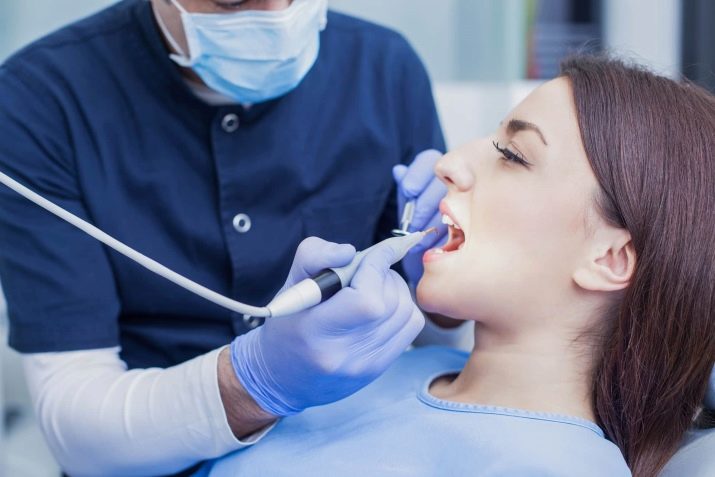
AirFlow is a professional cleaning system that discharges air, water and soda under high pressure. This mixture effectively removes tartar and plaque from teeth. Usually, after manipulation, the enamel is lightened by two tones and becomes shiny.
Polishing - includes the treatment of teeth with professional compositions based on zirconium microgranules.
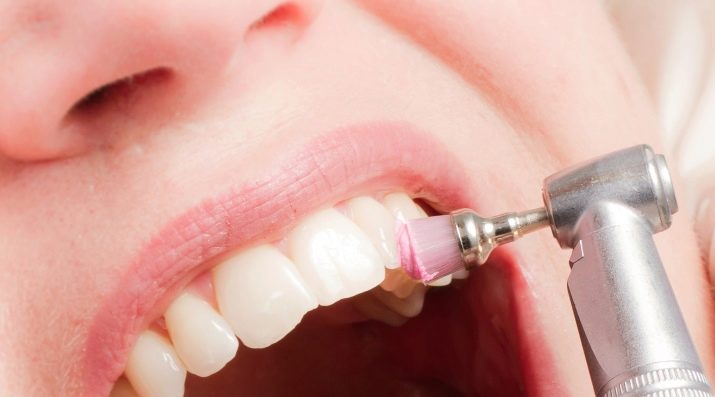
Fluoridation - the purpose of such manipulations is to saturate the tooth enamel with fluoride ions. In this case, trays containing gel are applied to the dried surface of the teeth.
Please note that only a doctor can choose the best option for professional exposure. To do this, he examines the oral cavity and identifies all its problems. The use of professional treatment systems at home is fraught with deterioration of the condition of the teeth and oral cavity.
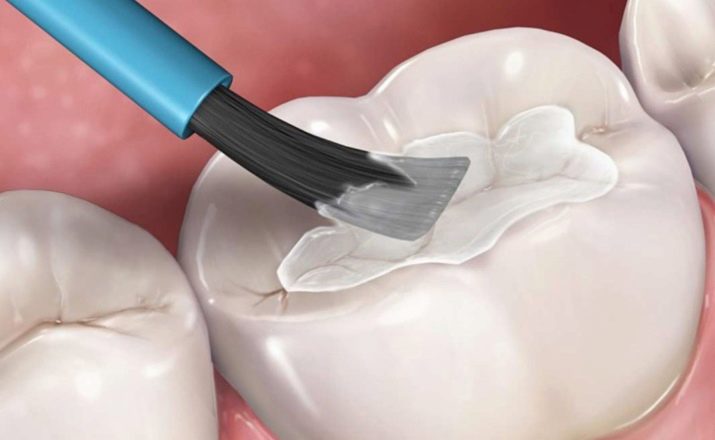
General recommendations
In conclusion, we will give a number of general tips that will allow you to keep hard and soft tissues healthy for a long time. First of all, you need to give up smoking - this will be of great benefit not only to the teeth, but also to the entire body. Nicotine leads to pathologies of the oral cavity of varying severity, ranging from stomatitis to serious complications, even oncology.
In addition, it will save you from the side effects caused by using chemicals to mask unpleasant tobacco odors. Some people smoke a cigarette and drink a cup of coffee to freshen their breath. Thus, the damage done to the enamel doubles.
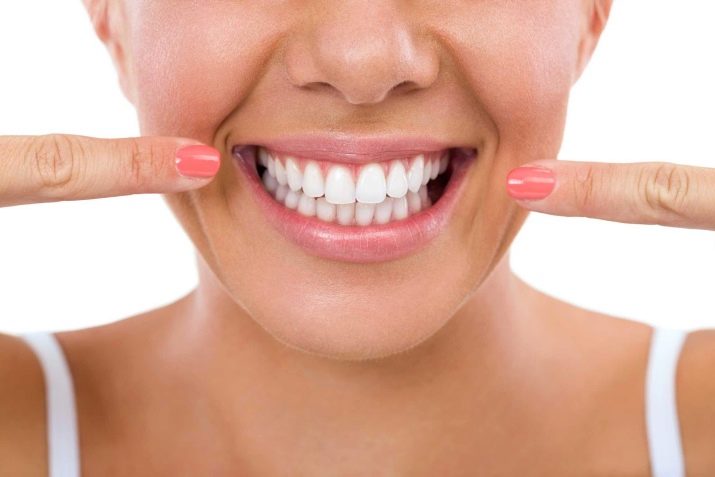
Carbonated drinks and alcohol contain high concentrations of phosphorus. Of course, this element is needed to maintain oral health. However, its excess leads to a decrease in the level of calcium in the body. This, in turn, causes tooth decay and gum problems.
Drinks containing food coloring and corn syrup can make even the whitest smile look pale and dull. Therefore, dentists advise to eat milk more often - it not only gives a healthy smile, but also additionally strengthens the enamel.

Be sure to consume vitamins for the proper growth of dental and bone tissue. A person needs calcium, it is found in cottage cheese, dairy yogurt, broccoli and orange juice. Vitamin D is equally important for teeth - it protects the gums from bleeding. In addition, to maintain the health of the soft tissues of the oral cavity, a person needs iodine, copper, iron, zinc and potassium. Vitamins and dietary supplements are best to ensure your daily intake of these micronutrients is best.
In an attempt to make the smile white, some add hard particles such as baking soda, salt or black activated carbon to the paste. Indeed, they give a pronounced whitening effect, but at the same time they thin the protective shell of the teeth and provoke irritation of the gums. Therefore, with frequent use of such components, the condition of the teeth deteriorates significantly.

Each meal should be finished with a mouth rinse. If this is not possible, eat an apple. The acids contained in these fruits remove plaque and whiten teeth slightly. However, keep in mind that this is an emergency measure, it will not replace a complete cleaning of your teeth.
Chewing gums are good for your mouth. They freshen breath well and effectively remove food debris from the oral cavity. However, you only need to use sugar-free gums, otherwise they will cause tooth decay.
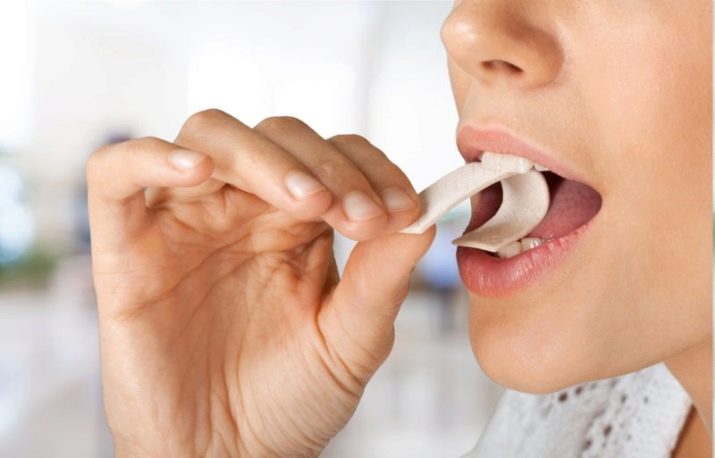
In order to prevent soft tissue diseases, you can rinse your teeth with an infusion of beet leaves or plantain herb. In addition, after waking up, it is recommended to rinse the mouth with vegetable oil. This product effectively disinfects mucous membranes. Traditional cleaning is used to remove oil residues.
And of course, you should visit your dentist at least twice a year. The doctor will conduct an examination, identify the presence of inflammation and heal them at the initial stage. For any discomfort in the oral cavity, you should immediately consult a doctor. The dentist will be able to eliminate the cause of painful sensations before it leads to the destruction of dental tissue.
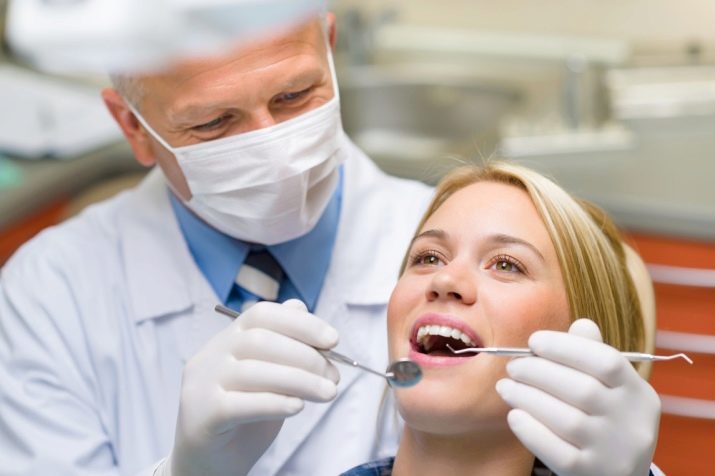
It is important to understand that Compliance with the rules of oral care should be mandatory, and hygiene should be daily and regular. This is the only way you can maintain your appearance and avoid toothache.
